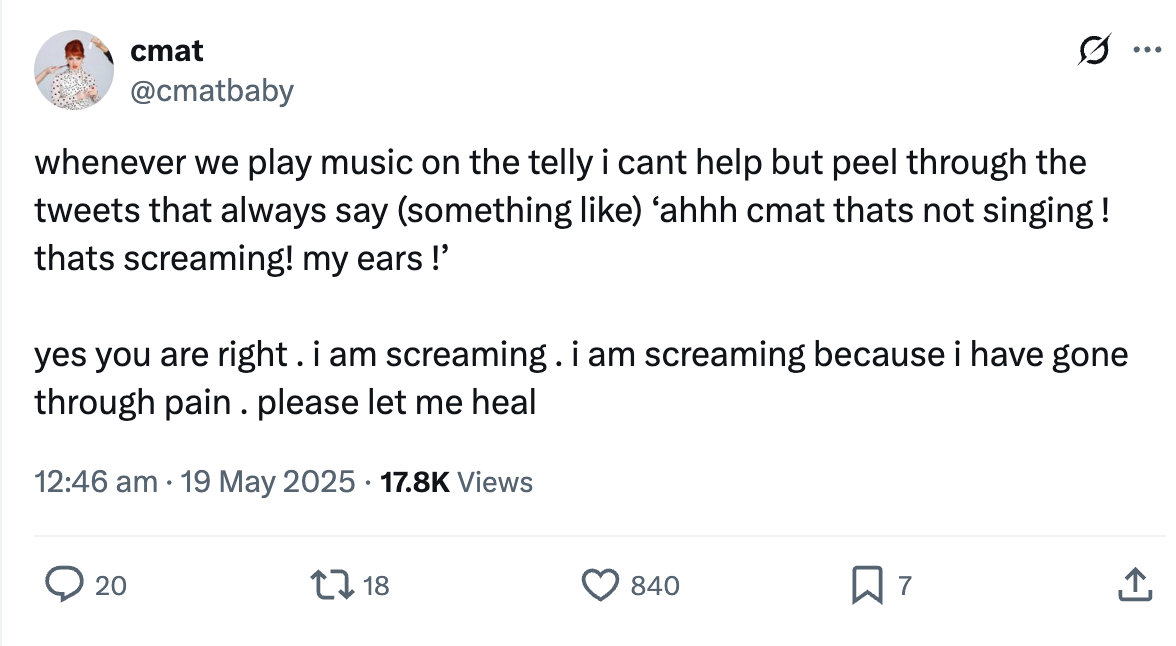Shakira is back from her musical hiatus, and while her new album is intended as empowering, it forces us to question whether the monetisation of our pain makes our suffering more or less valuable.
Colombian singer known mononymously as Shakira is back on the scene and our screens.
After a self-professed difficult few years, Shakira is currently undertaking her ‘Las Mujeres Ya No Lloran’ tour. The title, taken from her latest album which won a Grammy this year for Best Latin Pop Album, translates to ‘women no longer cry’.
The full phrase, in her song Shakira: Bzrp Music Sessions, Vol.53, featuring Argentinian producer and songwriter Bizarrap, is “las mujeres ya no lloran, las mujeres facturan” which translates to “women no longer cry, women make money”.
The song goes on to invoke the “loba” (she-wolf) inside of her which enabled her to endure a difficult few years. These have involved suspended criminal charges for tax evasion and divorce.
In an interview about the album, Shakira explained that the title came from her view that “it’s men’s turn now” to cry.
She talked about the role that often befalls women to have to contain their emotions in front of their kids and society, and the expectation that women “have to heal in a certain way.”
Las Mujeres Ya No Lloran is about women deciding how, when, and for how long they get to heal themselves. So what does she say is the reason it took so long (it’s been 7 years) for her to release a whole body of work?
In her own words, “the husband was dragging me down!”
Shakira has also acknowledged the privilege she has to transform her pain into art. Her decision to reclaim the globally acclaimed stardom that she’s both known for and deserving of, and to focus on success rather than the breakdown of interpersonal relationships with m*n, has been lauded by her fans as both uplifting and empowering.
@fallontonight @Shakira had time to write Las Mujeres Ya No Lloran following her divorce. “The husband was dragging me down. Now I’m free!” #FallonTonight #TonightShow #Shakira #LMYNL #Punteria #LasMujeresYaNoLloran
La ola tercera?
Many concert goers and fans have posted videos of themselves singing along to the catchy lyrics and attempting to mimic Shakira’s immaculate choreography. In many ways, these lyrics speak to an era of self-development, of driven ambition, and a focus on independence and stability over suffering.
However, is Shakira’s focus on empowerment through the monetisation of her pain – at the expense of other women – a larger symbol of a regression to third wave feminism, reminiscent of the more recently termed ‘Girlboss’ era?
Otherwise known as “radical feminism”, this wave was, undoubtedly, a fundamental stage in the progression of women’s rights. It sought to critique traditional monogamous structures as oppressive, celebrated body positivity, and aimed to incorporate previously neglected intersectionality into the feminist movement.
Except, we’re no longer living in the noughties, when this wave saw its heyday. And feminism, like everything, is subject to a constant and ongoing process of evolution.
Unfortunately, Shakira’s lyrics, which refer to her ex-husband’s new partner as her ‘reemplazo’ (replacement) and insinuates that she was ‘un rehén’ (a hostage) in her marriage don’t quite line up with the most prominent values of the current fourth wave.
These values include things like: adaptability, embracing diverse perspectives, and empowering women.
View this post on Instagram






















